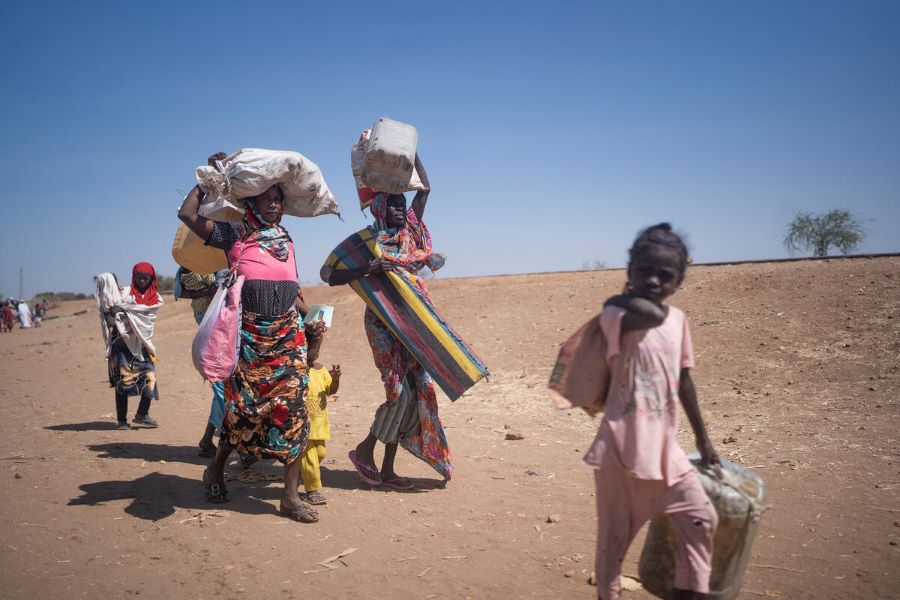"The impact of this conflict spans three countries - Sudan, South Sudan, and Chad - and has created the world's largest displacement crisis. Almost a year into the war and we're seeing no signs that the number of families fleeing across borders will slow. The children and women who are crossing to South Sudan or Chad are hungry and arriving with no resources," said Michael Dunford, WFP's Regional Director for Eastern Africa, from the South Sudanese border town of Renk, where around half a million of those fleeing the war have arrived.
Hunger and acute malnutrition have soared in Sudan since the conflict broke out. There are 18 million acutely food insecure people within the country and around 3.8 million Sudanese children under 5 years old are malnourished. Most are trapped in areas of active fighting where WFP and other aid agencies are struggling to maintain consistent access. Those who can escape are fleeing to places like South Sudan or Chad, adding to already dire humanitarian situations in both countries.
Those arriving today in South Sudan are joining families already struggling with slashed rations and extreme hunger. Malnutrition is increasing rapidly among children who are languishing in temporary transit camps. Trends observed by WFP indicate that approximately 4 percent of children under 5 years of age crossing the border into South Sudan are malnourished on arrival. But, this figure rises to 25 percent among children in the transit centre in Renk near the Sudan-South Sudan border, suggesting the longer people spend in temporary camps, the more likely they are to become malnourished.
"Unless this conflict is resolved, unfettered access is granted to humanitarian agencies, and funding is received, this crisis will only worsen," said Dunford.
"We need to be able to provide support to families in Sudan to avoid the world's largest displacement crisis turning into a hunger catastrophe as we approach the lean season".
In Chad, more than 553,000 Sudanese, mainly from Darfur, have fled since the conflict broke out. Around 40 percent of refugee children brought to an emergency clinic at a reception camp were found to be suffering from acute malnutrition. The malnutrition rate in many Sudanese refugee camps in Chad - including camps that pre-date the current war - is well above the WHO emergency threshold of 15 per cent. WFP has had to prioritise scarce resources to the new arrivals, many of whom are crossing the border with nothing. This means pre-existing refugees no longer receive assistance, yet they are not necessarily in better shape than those arriving today.
A devastating hunger catastrophe is approaching as food and nutrition needs across Sudan, South Sudan, and Chad soar. Humanitarian assistance is vital and yet WFP is facing an almost US$300 million funding gap for the next six months.







